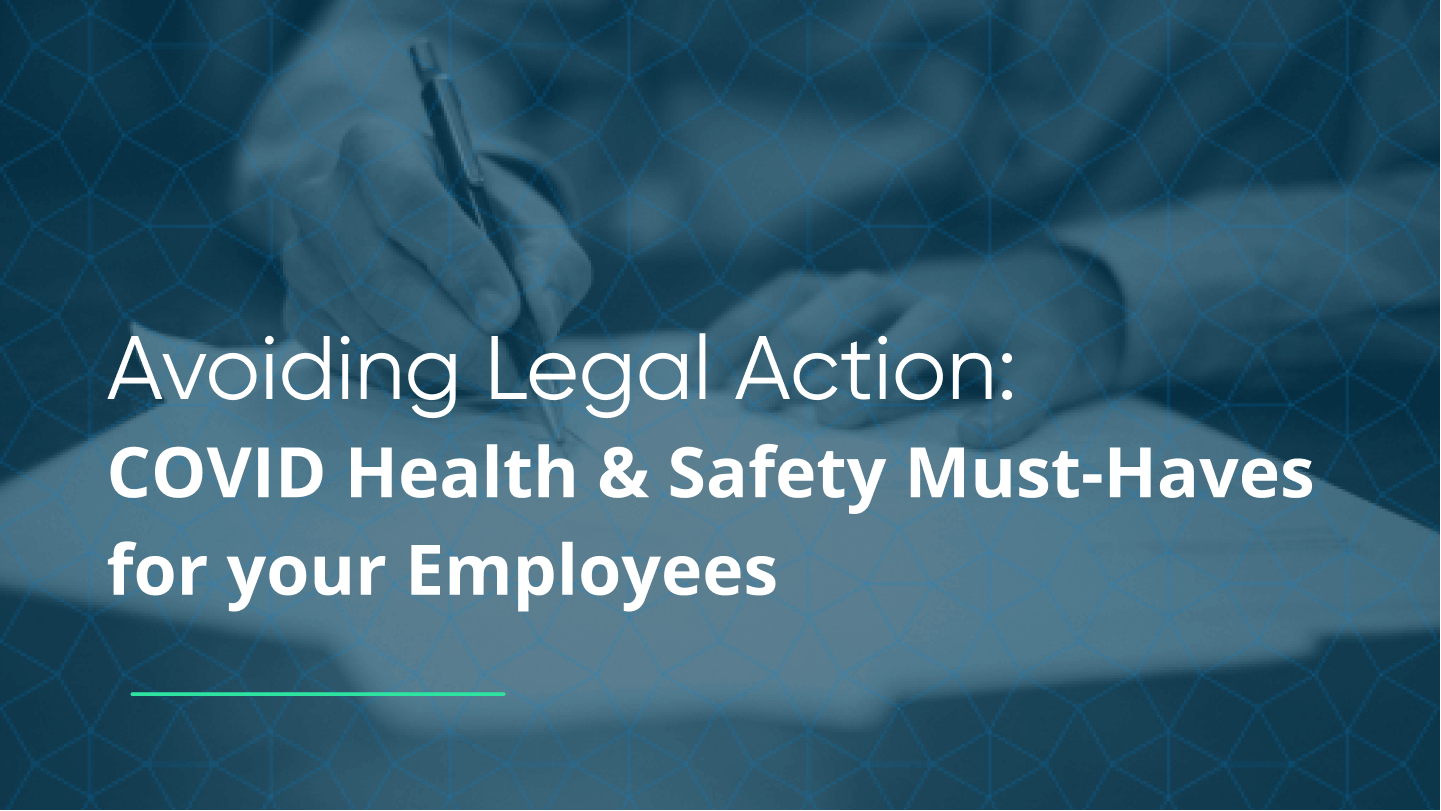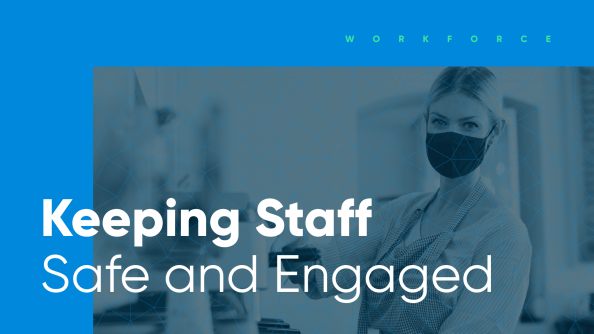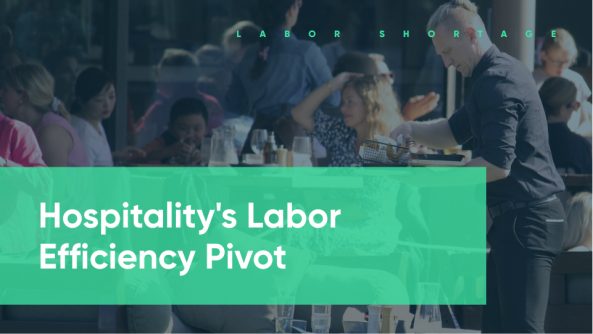Avoiding Legal Action: COVID Health & Safety Must-Haves for your Employees

- By Harri Insider Team | November 19, 2020
Back in March, the restaurant industry took a hard hit when the US went into lockdown in an attempt to flatten COVID-19’s curve. No one would have ever guessed that, seven months later, the pandemic would still be one of the driving forces of change across the globe with a still-growing number of COVID-19 lawsuits.
Even as restaurants began to reopen, they faced a myriad of restrictions that affected their ability to rebound and recover revenue lost during the lockdown period. These restrictions have led to a series of pandemic-related lawsuits against the restaurant industry that show no signs of slowing down.
As restaurants begin to supplement financial and operational challenges with technological solutions, we found that a number of lawsuits could be avoided with the use of a hospitality-focused tech stack.
COVID-19 lawsuits by the numbers
Out of the 5,000+ COVID lawsuits that IFA member Hunton Andrews Kurth has tracked, Littler Mendelson found that since March 12, there have been 1,113 lawsuits (including 114 class actions) filed against employers due to alleged labor and employment violations related to COVID-19.
The filings have increased steadily over the past several months:
- March 12-31: 9 complaints
- April: 54 complaints
- May: 94 complaints
- June: 136 complaints
- July: 160 complaints
- August: 178 complaints
- September: 212 complaints
- October: 226 complaints
- November 1-12: 87 complaints
California is leading the way with 237 cases filed, with New Jersey (124), Florida (108), and New York (82) following behind.
Common complaints:
- Retaliation (502)
- Wrongful termination (216)
- Workplace safety (242)
- Leaves of absence (244)
- Discrimination (215)
The healthcare industry has been hardest hit by COVID-19 related employment litigation with 256 alleged violations, but hospitality and retail follow closely behind with 85 and 78 complaints, respectively.
How are COVID-19 lawsuits impacting the hospitality industry?
Restaurants face numerous legal challenges in the wake of COVID-19 that makes it difficult to stay afloat even without active lawsuits in play. Crewfews, shifting indoor dining regulations, and menu ordering requirements are difficult to keep up with. They also threaten hefty legal fees if broken. Businesses in cities or states where Fair Workweek labor regulations are mandated also need to worry about new (and often unclear) labor compliance requirements.
Consider these challenges against existing labor laws, COVID-19 safety for employees and guests, the rising minimum wage, day-to-day operational costs, or the unpredictable nature of the hospitality industry. For many, it feels like fighting a losing battle.
Health-related challenges and how to avoid them
Implement tech-based safety precautions
The feeling of expendability is a growing problem that front-line employees are facing, and businesses are paying the price. The hospitality industry is unavoidably labor-dependent, which means that employees must be exposed to COVID-19 to some degree in order to serve guests at the minimum.
“Workplace safety” makes up a considerable amount of COVID-19 lawsuits, but the right technology (plus ample PPE!) can mitigate this risk. Employee health screening tools, like the Harri Employee Health Check Platform, provide easy ways to administer health screens and ensure workplace safety.
With every screening, you make a promise to your employees and customers that you are committed to curating a safe environment for everyone.
Our Employee Health Check platform allows you to:
- Quickly log employee symptoms at the touch of a button
- Efficiently capture temperatures before employees enter the workplace
- Receive proactive alerts when an employee fails a screening
- Generate a Health Check summary to be displayed for customers or attached to your delivery orders for peace of mind
- Audit historical employee health checks across your entire business
And, depending on where your business operates, the state government may require restaurants to implement some sort of health screening procedure, which means legal fees for establishments that fail to comply.
We put together an interactive map tracking these requirements so you can stay up-to-date on the latest requirements and act accordingly.
Enable business transparency
No matter how many safeguards you put in place, a staff member might test positive for COVID-19. There are so many factors that can lead to exposure inside and outside of the workplace that it’s impossible to guarantee a negative test for any employee. A positive COVID-19 test result may seem like a major setback, but it doesn’t have to be.
Once the infected person is removed from the premises all staff should be notified, especially those who worked a shift with the infected employee. Employee communication tools, such as an internal messaging system, are one of the most effective ways to deliver trusted, consistent messaging.
A deep cleaning is the obvious next step, but that doesn’t mean you can let your guard down. Screen employee health before they enter the workplace to maintain a safe and sanitary environment.
Labor-related challenges and how to avoid them
The number and nature of COVID-19 lawsuits point to labor challenges as a growing trend in the hospitality industry. Weighing the labor costs versus the demand for service is an extremely difficult balancing act, and it’s impossible to find the winning formula in this new normal.
Encourage communication
Businesses, employees, and customers alike are left in the dark in the wake of COVID-19 with inconsistent government messaging only adding to the uncertainty. Keeping consistent and transparent employee communications is key to avoiding unnecessary labor lawsuits.
For many restaurants, pandemic-related furloughs were necessary to avoid complete closure. However, the real trouble starts when communication stops.
To avoid COVID-19 lawsuits, we recommend actively communicating the following to all employees, active or not:
- What the business’ reopening plan is moving forward
- Responses to new government mandates
- Steps being taken to improve employee and guest safety
- Benefits available to furloughed employees
- Challenges the business is facing and how they plan to overcome them
- Business wins, no matter how small
An increasing number of restaurants are relying on an employee communication platform to relay these messages and keep frequent communications during these uncertain times. Our mobile employee communication tools enable real-time messages to entire groups of employees, one-on-one messages to individual workers, and multi-channel notifications targeting your team’s preferred social platforms. Whether you’re relaying critical business news or are answering one-off questions from furloughed employees, our tools ensure full-business transparency.
Utilize tools that combine forecasting with smart scheduling
Labor-driven scheduling is an effective way to create a safer working environment and might make the difference between furloughing an employee or reducing their hours. Equally as important is the ability to accurately determine labor and operational costs caused by COVID-19.
Individually, employee performance datasets are helpful, but when combined with labor insights and sales information, they provide a 360-degrees view of your hospitality business. An all-in-one tool that doesn’t just understand your business’ most busy shifts, but also knows which employees are best suited to those shifts based on past performance ensures a highly efficient workforce.
Rather than staffing too many employees on historically slower days, managers are empowered to reallocate those hours towards shifts that could really benefit from the extra labor.
Did you know that scheduling dissatisfaction is one of the most common reasons why an employee quits a hospitality job? Smart scheduling tools seamlessly factor in employee scheduling preferences when available. While this may not seem to directly impact COVID-19 lawsuits, it does improve manager-employee relationships, significantly decreasing the chance that an employee will take legal action following a COVID-19 layoff.
Labor regulations such as Fair Workweek further emphasize why smart labor management is necessary in a time of rampant COVID-19 lawsuits. For one, smart scheduling tools like Harri automatically take labor regulations into consideration, making it much easier to avoid compliance violation fees through the use of thoughtful employee schedules.
Many enterprise-level businesses set aside a budget for potential labor-related legal fees, which means that simply identifying and implementing these schedules aren’t enough. Tools that predict costs across all business aspects, from labor and operations to employee sales and payroll, enable data-driven plans if a lawsuit does strike.
Preparation is key
Just when we think we’re getting a hang of managing COVID-19’s unique operational challenges, a new roadblock enters the fray. As infection numbers rise and fall, hospitality businesses need to constantly adapt in order to minimize their chance of facing non-compliance lawsuits.
It’s clear that those who adopt all-in-one HCM tech and employee health screening tools have an advantage, benefiting from proactive prevention tools and a paper trail to prove that proper protocol was followed.





















